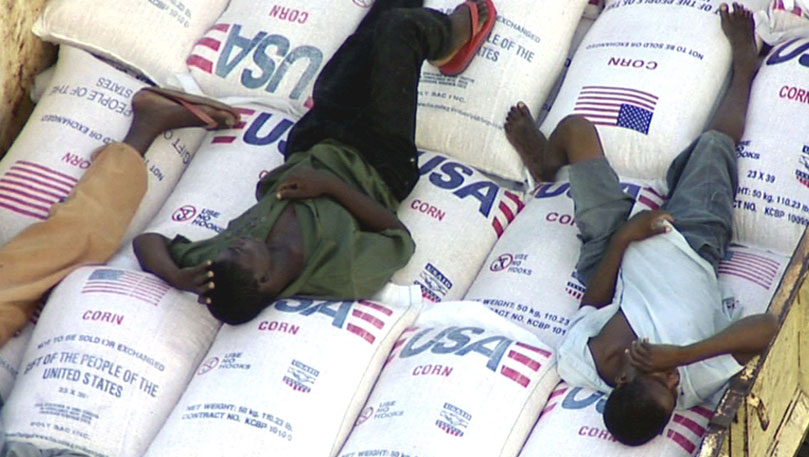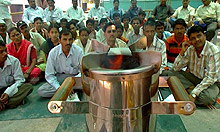As a team of managers in Gambia try to build a microfinance business,…
The Price of Aid

- Description
- Reviews
- Citation
- Cataloging
If you are not affiliated with a college or university, and are interested in watching this film, please register as an individual and login to rent this film. Already registered? Login to rent this film.
Every day the U.S. donates millions of tons of food to famine victims and other starving people in the world's poorest countries. This provocative documentary, through an in-depth case study of a recent famine crisis in Zambia, shows how these aid programs may address an immediate crisis but at the same time can create long-term problems for the recipient nation.
THE PRICE OF AID reveals the vast bureaucratic network of American aid agencies involved in the 'hunger business,' one in which rich countries benefit from the problems of poor countries. U.S. aid policies are explained in interviews with representatives from the U.S. Agency for International Development, the Coalition for Food Aid, CARE, the World Bank, the Farm and Foreign Agriculture Service, the Food for Peace Program, and U.S. government officials.
Zambian government officials, including former and present Ministers of Agriculture, as well as Zambian farmers, explain how foreign food donations perpetuate a state of dependency among African and other Third World countries, undercutting local agriculture and development projects. U.S. aid programs, rather than assisting developing nations to become self-reliant, primarily serve to implicate them in a globalization process that finally does more harm than good, endangering their health, environment and economies.
THE PRICE OF AID discusses this complex issue in a global context, including the role of the international media in identifying famine crises, how America's export of genetically modified foods creates problems for African agriculture and public health, how foreign aid is involved in trade competition between the U.S. and European countries, and how assistance provided by the European Commission for Humanitarian Aid differs from U.S. policies. In the end, THE PRICE OF AID questions how America's well-intentioned foreign-aid program has spawned a self-serving relationship between humanitarian aid and American business and politics.
Related Films
A global investigation into the evolving nature of food production, and…
Documents the efforts of the multinational corporation Philips to reach…




